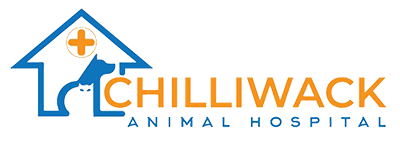Library
-
Toceranib phosphate is given by mouth and is used on and off label to treat mast cell tumors and other cancers in cats and dogs. Common side effects include diarrhea, decreased or lack of appetite, lameness, or weight loss. Do not use in pets that are allergic to it, are breeding, pregnant, or lactating, are less than 24 months old, weigh less than 11 lbs (5 kg), or that are having or have had surgery in the past 2 weeks. If a negative reaction occurs, please call your veterinary office.
-
Topical omega-3 fatty acids are found in various skin support products for pets to promote a healthy skin and coat in dogs, cats, small mammals, and horses. These products, such as Dermoscent® Atop 7®, are often used in combination with omega-6 fatty acids to enhance overall health and reduce inflammation. They can also help decrease itching associated with certain skin diseases.
-
Tramadol is a synthetic opioid given by mouth in the form of a tablet, capsule, or compounded liquid, and is used off label to treat pain. Common side effects include sedation, gastrointestinal upset, or agitation. It should not be used in pets that are hypersensitive to opioids, and should be used cautiously in geriatric, sick, or pets with seizures. If a negative reaction occurs, call your veterinary office.
-
Trazodone oral tablets are commonly used off label to treat short-term anxieties or as an adjunctive treatment for behavioral disorders in dogs and cats. Side effects may include sedation, behavior changes, vomiting, and priapism. Patients with heart, kidney, or liver disease or closed angle glaucoma should use this medication with caution.
-
Triamcinolone acetonide is given by mouth or injection and is used on and off label to treat Addison’s disease, inflammatory conditions, and immune-mediated diseases. Give as directed. Common side effects include increased drinking, increased urination, and increased appetite. Do not use in pets that are allergic to it, or pets with systemic fungal infections, viral infections, ulcers, tuberculosis, or Cushing’s disease. If a negative reaction occurs, please call your veterinary office.
-
Triamcinolone acetonide otic is a corticosteroid used to treat inflammation in the ears of cats and dogs. It may be specially compounded and/or combined into a formulation with other medications. Its use may be off label depending on product formulation and species. Triamcinolone otic comes in liquid drops, ointment, cream, and gel forms.
-
Triamcinolone acetonide topical (brand names Genesis®, Vetalog®, others) is a corticosteroid used to treat itching, skin irritation, and rashes in dogs. It may be specially compounded and/or combined into a formulation with other medications. It is used off label in other species. Triamcinolone topical comes in cream and spray forms.
-
Trifluridine is an antiviral topical medication used to treat viral infections of the eye, such as herpesvirus-1 in cats. Give as directed. Side effects include eye irritation. Do not use in pets with an allergy to this medication. If a negative reaction occurs, please call the veterinary office.
-
Trilostane is a treatment for hyperadrenocorticism (Cushing’s Disease) and Alopecia X. It is given by mouth as a capsule, given with food. Common side effects include lethargy, vomiting, diarrhea, and anorexia. It is contraindicated in liver or kidney disease and pregnant animals. If an Addisonian crisis or any other negative reactions occur, call your veterinary office immediately.
-
Trimeprazine tartrate and prednisolone combination is given by mouth and is used on and off label to treat itchiness and cough in cats and dogs. Give as directed. Common side effects include sleepiness, increased drinking, urination, and/or appetite, muscle tremors or stiffness, restlessness, and panting. Do not use in pets that are allergic to it, are undergoing allergy testing within the next month, or have untreated Cushing’s disease or gastrointestinal ulcers. If a negative reaction occurs, please call your veterinary office.


